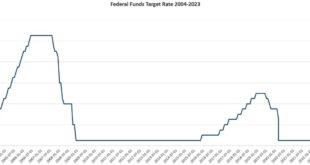How do people in a pluralistic society live peacefully with each other? In his review of Kenneth McIntyre's book, David Gordon points to negative liberty as the best way to preserve values. Original Article: "Nonmeasure for Nonmeasure" This Audio Mises Wire is generously sponsored by Christopher Condon. [embedded content]...
Read More »Reparations Are a Statist Cudgel for Bludgeoning Property Owners
San Francisco, as well as the government of California, is calling for millions in "reparations" for black people in that state. Reparations, unfortunately, are fast becoming another anti-property-owner racket. Original Article: "Reparations Are a Statist Cudgel for Bludgeoning Property Owners" This Audio Mises Wire is generously sponsored by Christopher Condon. [embedded content]...
Read More »Silicon Valley Bank and the Failure of Fractional Reserve Banking
The story of the failure of Silicon Valley Bank is the story of nearly every bank failure. Fractional reserve banking invites the risky behavior that brings down the banking system. Original Article: "Silicon Valley Bank and the Failure of Fractional Reserve Banking" This Audio Mises Wire is generously sponsored by Christopher Condon. [embedded content]...
Read More »How Politicians Use Regulations to Deflect Blame
The pro-life activist Randall Terry has a famous quote that anyone who cares about politics should be familiar with: “He who frames the question wins the debate.” Politicians are well aware of this fact, which is why they spend much of their time directing the political conversation into frameworks that benefit them. If they can get us arguing over how best to “reform” the education system, for instance, there will be little discussion about the bigger question of...
Read More »The Fear of Mass Unemployment Due to Artificial Intelligence and Robotics Is Unfounded
Ever since the Luddites rampaged through British textile factories in the early 1800s, people have feared that technology will result in mass unemployment. They were wrong then and are wrong now. Original Article: "The Fear of Mass Unemployment Due to Artificial Intelligence and Robotics Is Unfounded" This Audio Mises Wire is generously sponsored by Christopher Condon. [embedded content]...
Read More »The Fed Backtracks on Future Rate Hikes as Bank Failures Loom Large
The Federal Reserve’s Federal Open Market Committee (FOMC) on Wednesday raised the target policy interest rate (the federal funds rate) to 5.00 percent, an increase of 25 basis points. With this latest increase, the target has increased 4.75 percent since February 2022. However, with an increase of only 25 basis points, the March meeting is the second month in a row during which the Fed has pulled back from its more substantial rate hikes of 2022. After four...
Read More »Whither Goest the Entrepreneur
The Ludwig von Mises Memorial Lecture, sponsored by Yousif Almoayyed. Recorded at the 2023 Austrian Economics Research Conference hosted at the Mises Institute in Auburn, Alabama, March 16–18, 2023. [embedded content] The Austrian Economics Research Conference is the international, interdisciplinary meeting of the Austrian School, bringing together leading scholars doing research in this vibrant and influential intellectual tradition. The conference is...
Read More »The Other Covid Crisis: Prospects for Recovery from Pandemic Policies
The F.A. Hayek Memorial Lecture, sponsored by Greg and Joy Morin. Recorded at the 2023 Austrian Economics Research Conference hosted at the Mises Institute in Auburn, Alabama, March 16–18, 2023. [embedded content] The Austrian Economics Research Conference is the international, interdisciplinary meeting of the Austrian School, bringing together leading scholars doing research in this vibrant and influential intellectual tradition. The conference is hosted by...
Read More »Looming Bank Failures Point to More Price Inflation as Real Wages Fall Again
Even if Powell is sincere in this stated desire to slay inflation with more rate hikes, recent bank failures will put the Fed under enormous pressure to end its rate hikes and to once again embrace easy money to save the banks and Wall Street. Original Article: "Looming Bank Failures Point to More Price Inflation as Real Wages Fall Again" This Audio Mises Wire is generously sponsored by Christopher Condon. [embedded content]...
Read More »Did Colonialism Impoverish Africa and Asia? Perhaps Not
Revisiting the legacies of colonialism to indict Western imperialism has become a fashionable pastime for leading academics. Many argue that colonialism erected permanent roadblocks to thwart the progress of ex-colonies. Western colonialism is so vilified that any attempt to present a balanced overview is deemed improper. Bruce Gilley’s controversial essay, “The Case for Colonialism,” spawned a firestorm of criticisms that led the journal, Third World Quarterly, to...
Read More » Swiss Economicblogs.org
Swiss Economicblogs.org



